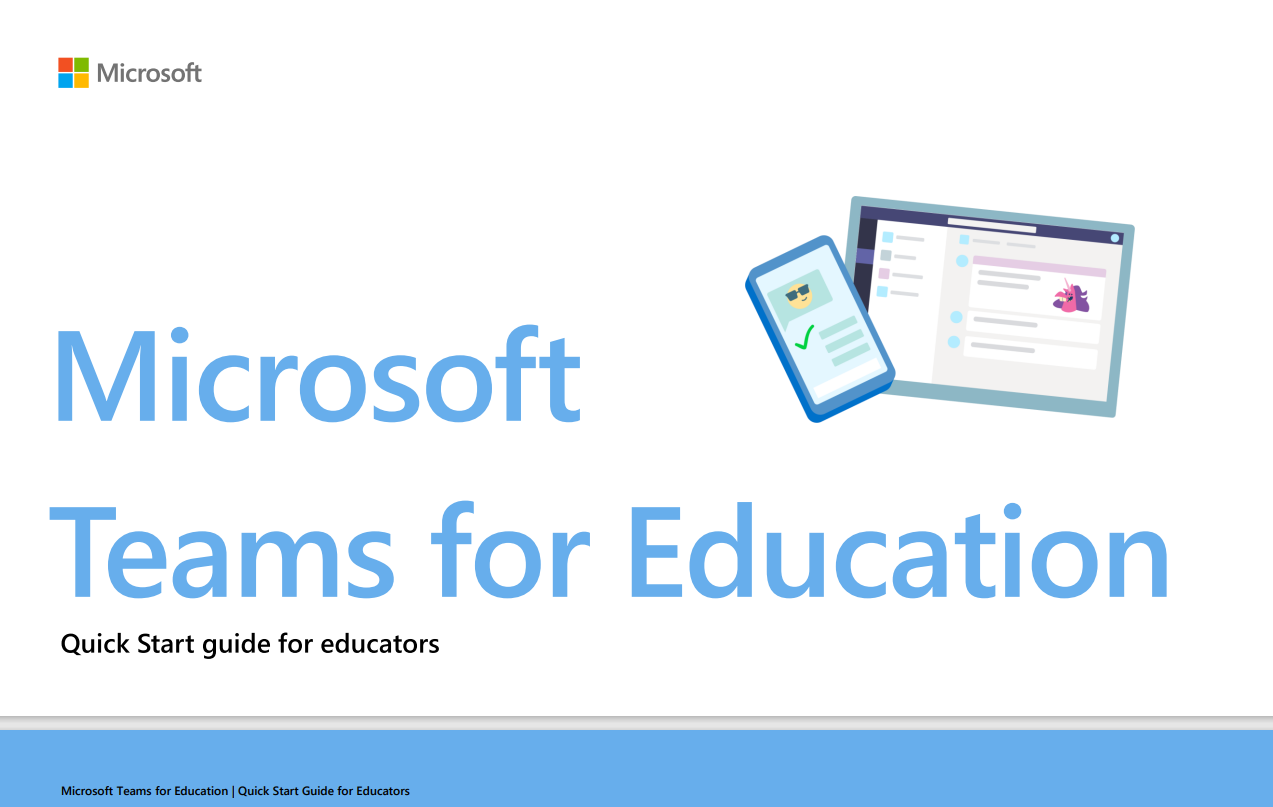
Explore Teams, Microsoft 365, and more tools from Microsoft Education.
This guide for educators is a quick and easy way to learn how to use Microsoft Teams for Education. It contains useful tips for engaging with colleagues and students within the Teams app. You can download it for offline, comprehensive access to Teams advice.

As an online teacher, you can use Teams and other Microsoft 365 Education apps to create engaging and collaborative learning experiences for your students. Teams allows you to communicate, share content, assign tasks, and provide feedback in one place. Whether you are teaching remotely, in person, or in a hybrid model, Teams can help you make the most of your day.
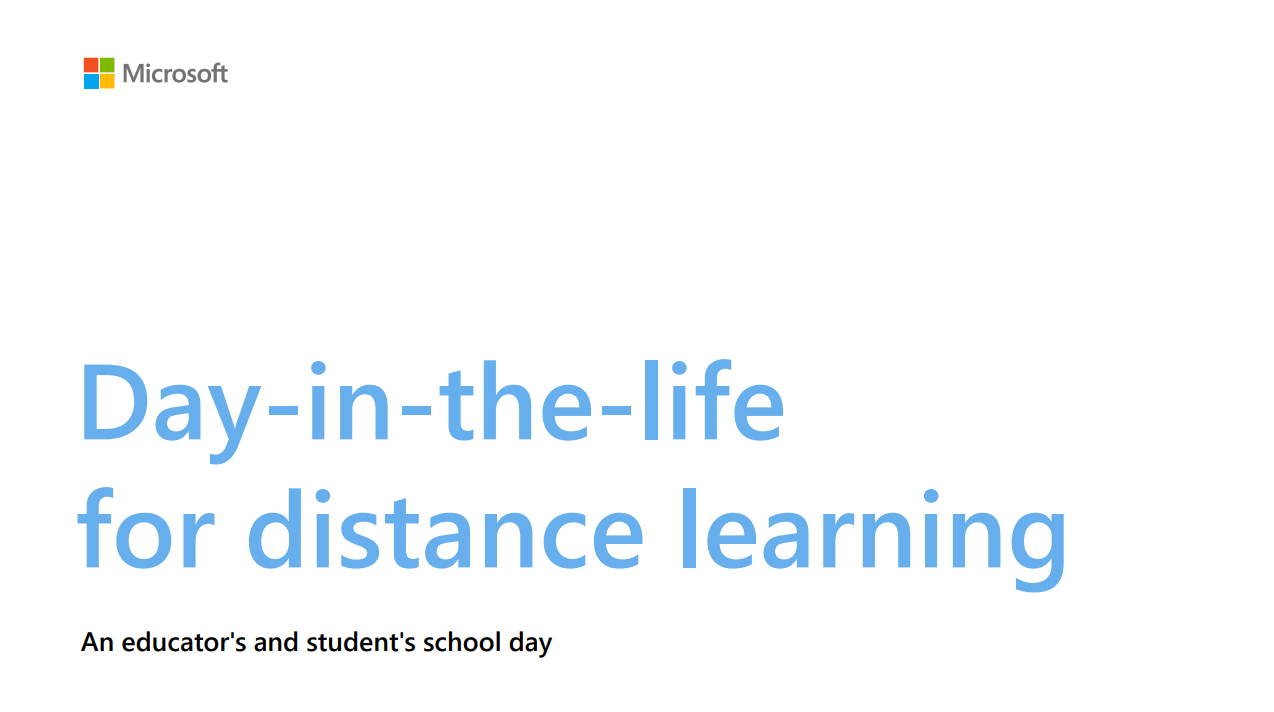
Copilot is accessed via copilot.microsoft.com or the Microsoft Edge sidebar. It allows you to pose complicated queries, obtain thorough responses, obtain condensed information, and uncover useful ideas all inside the same tab. Copilot summarizes your search terms for you in a paragraph using the Bing search engine. In order to focus the results, you can also ask additional questions and input prompts.
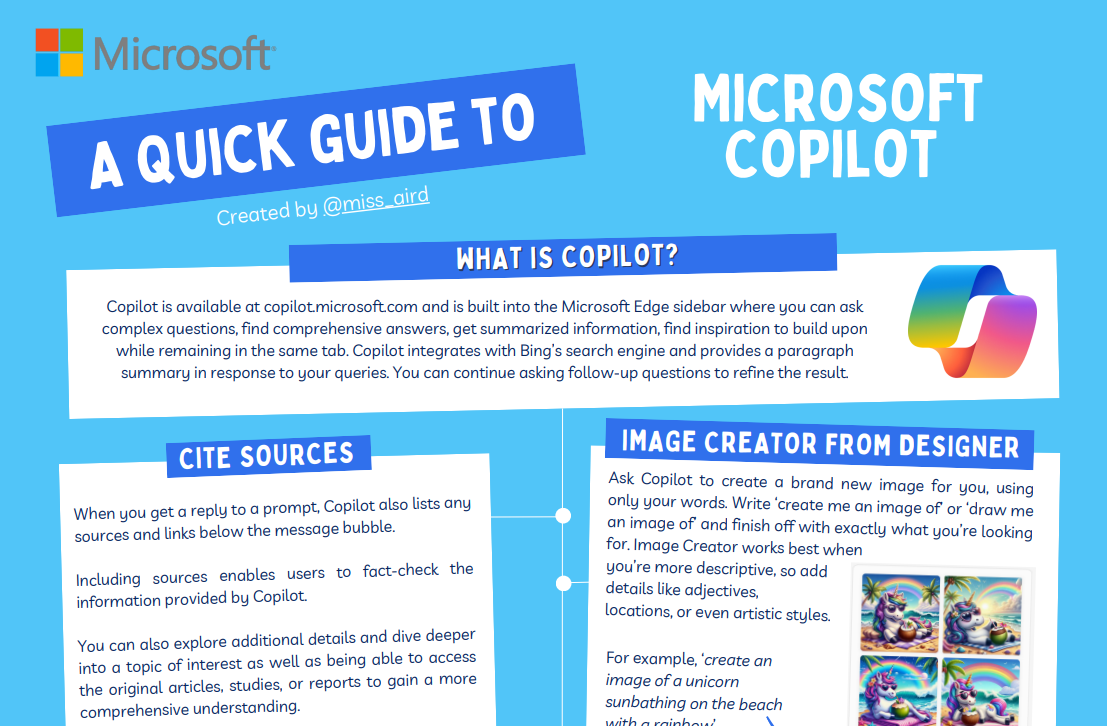
Microsoft Teams offers a free tool called Reading Progress that tracks and assists your class's reading proficiency. Students record and email you a video of themselves reading. You return students' work after grading it, and Insights automatically collects and organizes data so you may concentrate more on the students and less on data analysis.
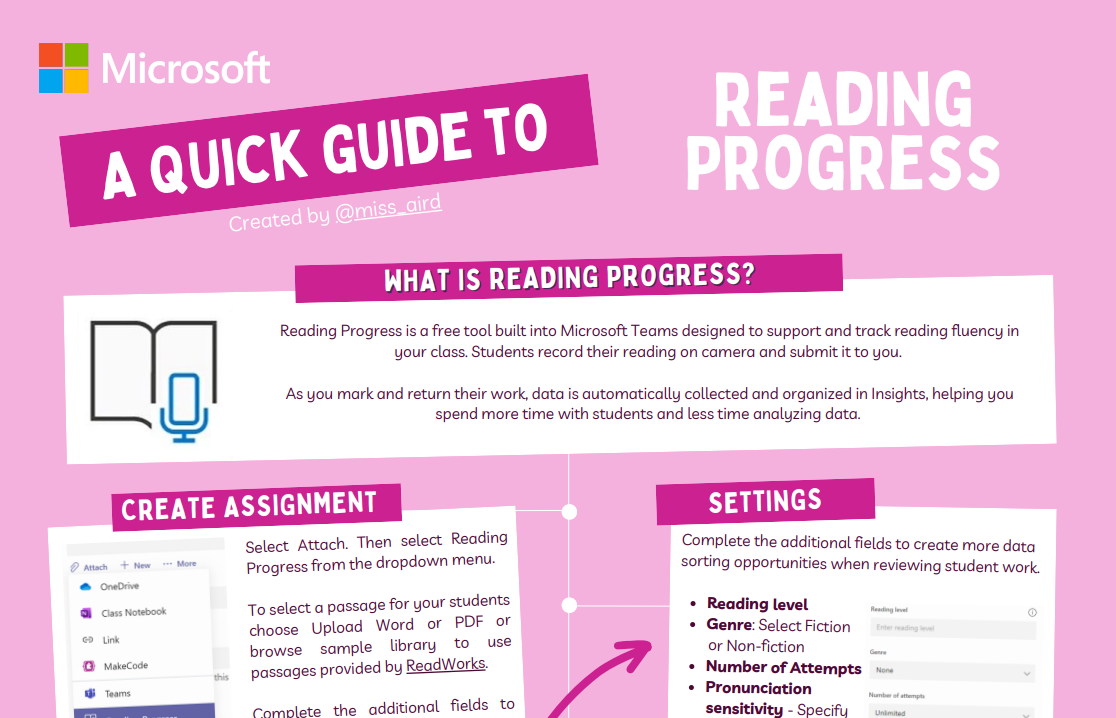
Teachers can use Search Progress to assign students a Search Coach, which allows them to compile references they come across while researching a certain subject. The teacher reviews and grades the collection that their students turn in as homework.
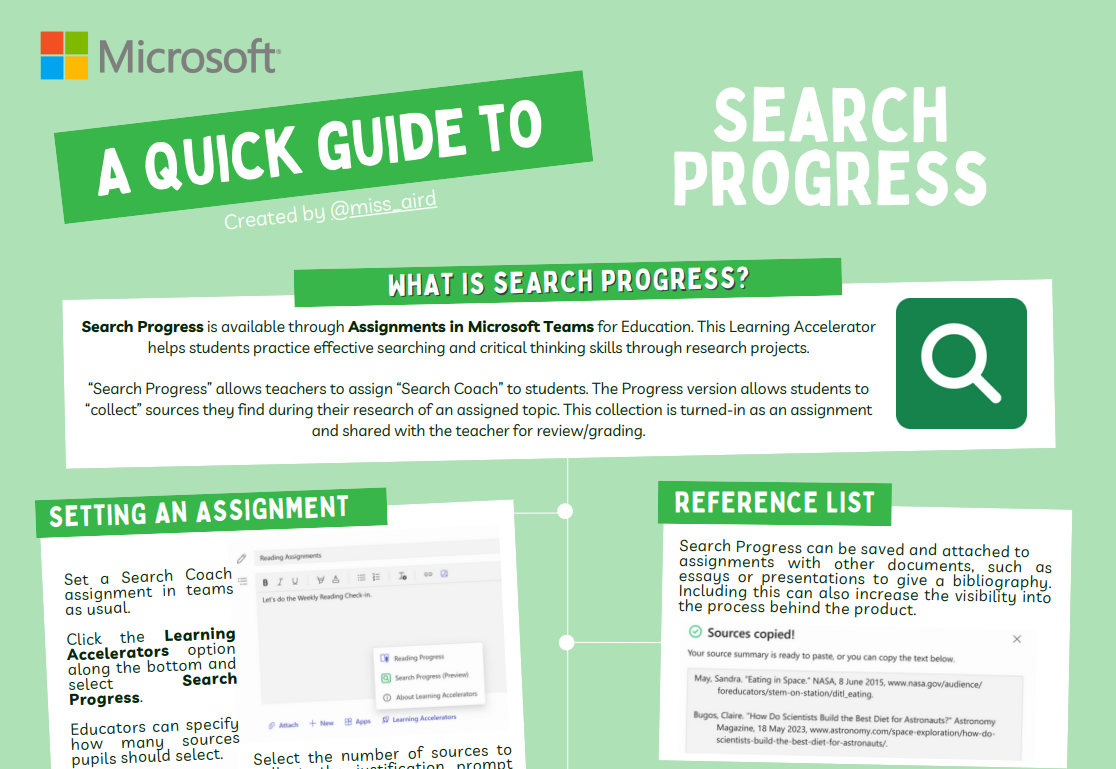
Search Coach is a free tool for teaching information literacy. Students receive real-time feedback on their search terms, trustworthiness scores, and interactive filtering assistance to assist them in distinguishing between the real and false information on the internet.
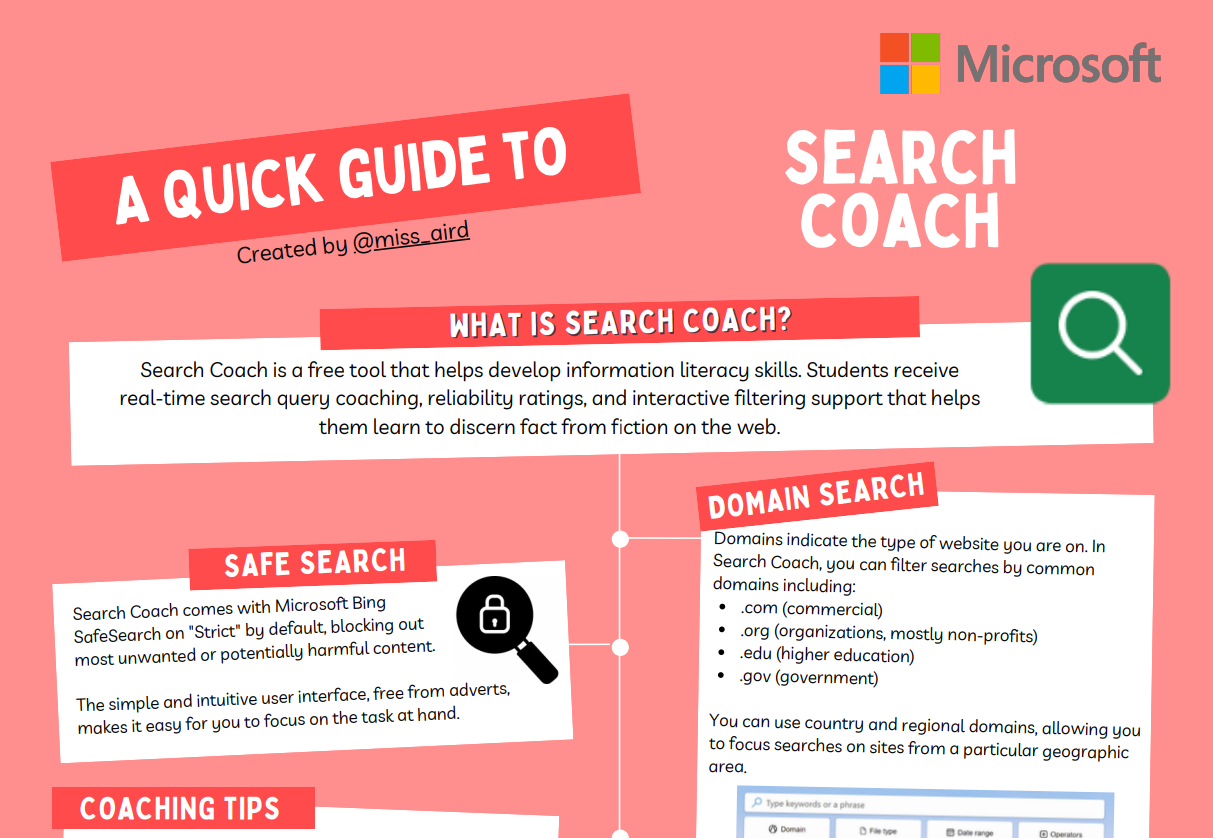
A digital notebook called OneNote Class Notebook assists instructors in organizing and managing their courses, course materials, and student work in one location. It can be used to create assignments, tests, and other educational resources.
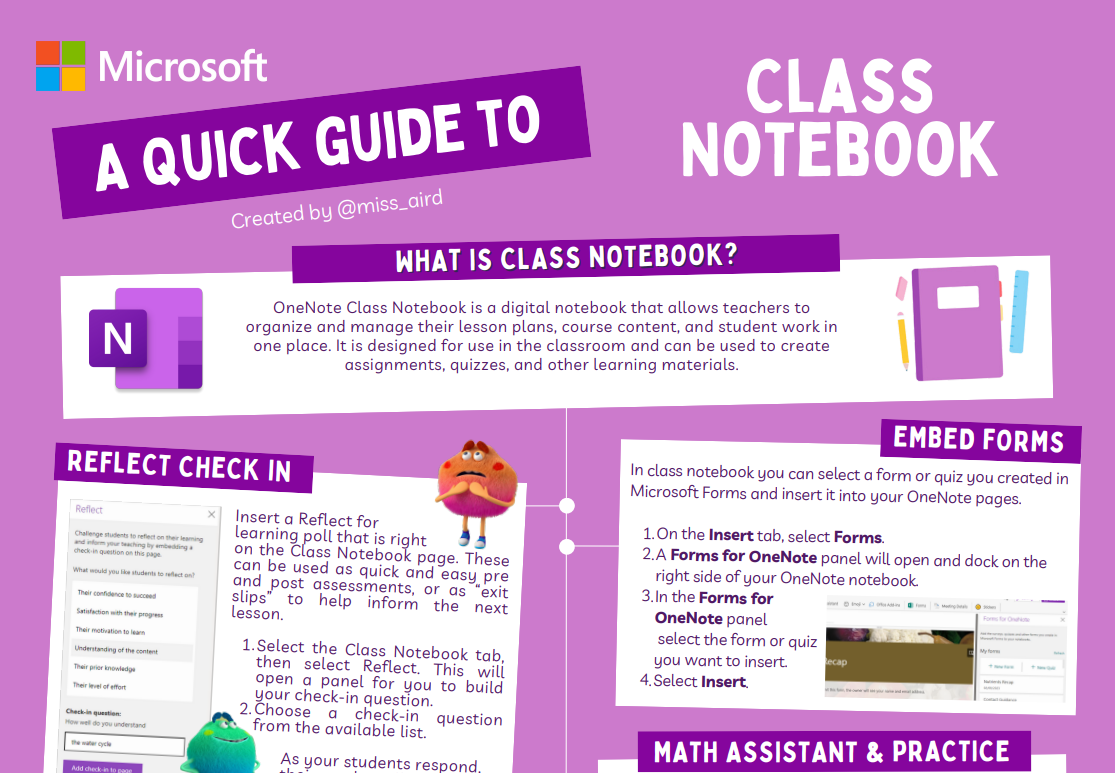
OneNote desktop is a Windows app for taking notes. It has an Office ribbon interface and helps you can make and sort notebooks, sections, and pages. OneNote desktop is useful for education because you can keep your lesson plans and course content in your own digital notebook. OneNote desktop also lets you add and embed web content, audio, and video to make interactive lessons for students.
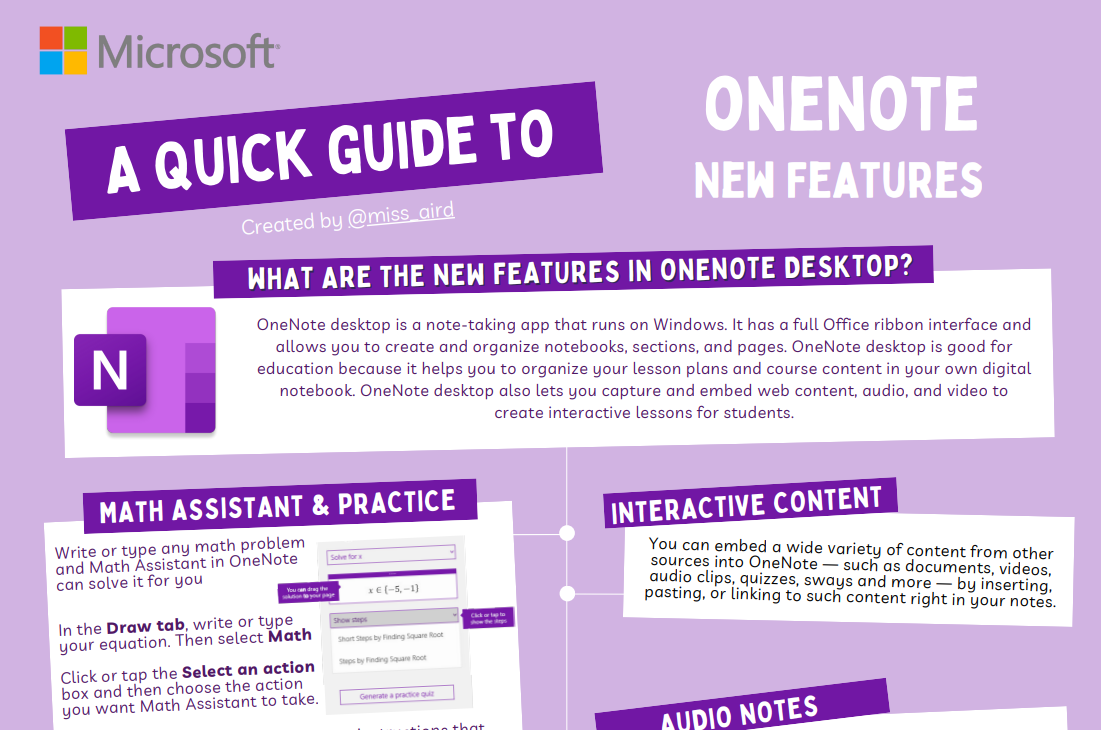
Microsoft Bookings is a Microsoft 365 app that helps educators schedule and manage appointments easily. With Microsoft Bookings, teachers can set up a booking page where they can let others book and sync appointments with their Outlook calendar.
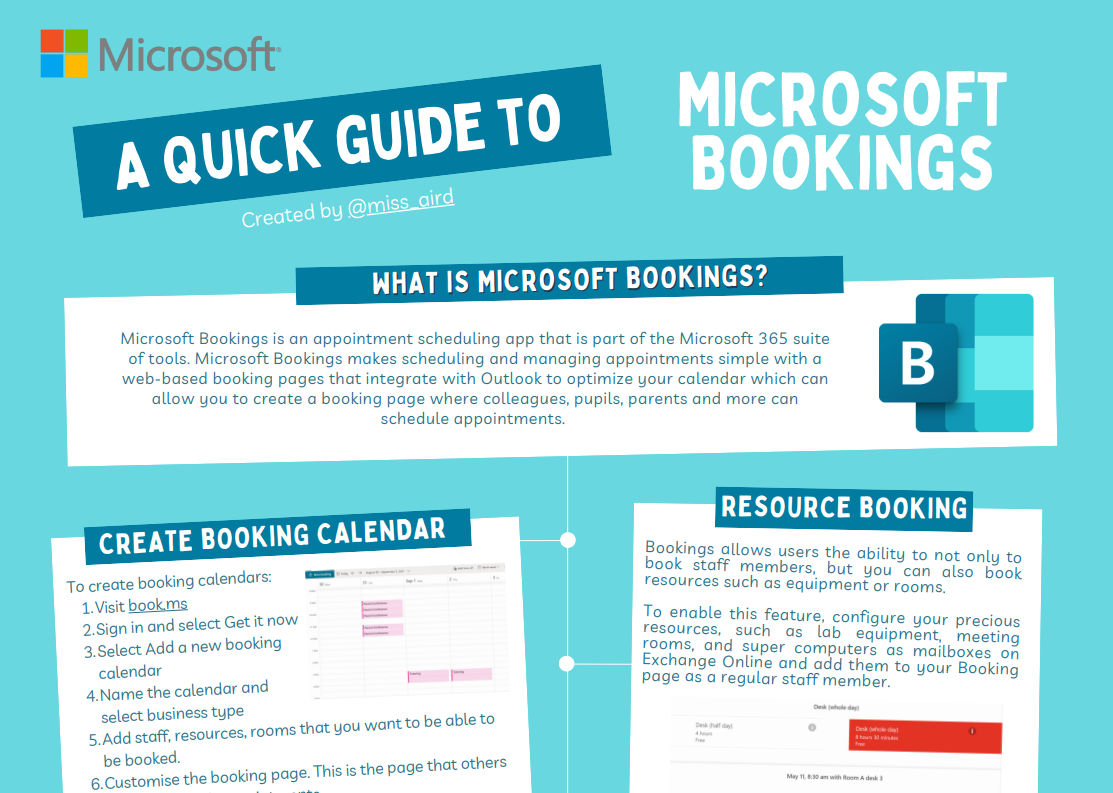
Microsoft Word enables educators to produce, modify and distribute documents for their students. It can assist teachers in fixing spelling and grammar errors as they write and help them design inclusive learning materials by adding and using visual tools such as diagrams, tables, charts and accessibility features that allow all students to understand learning materials.
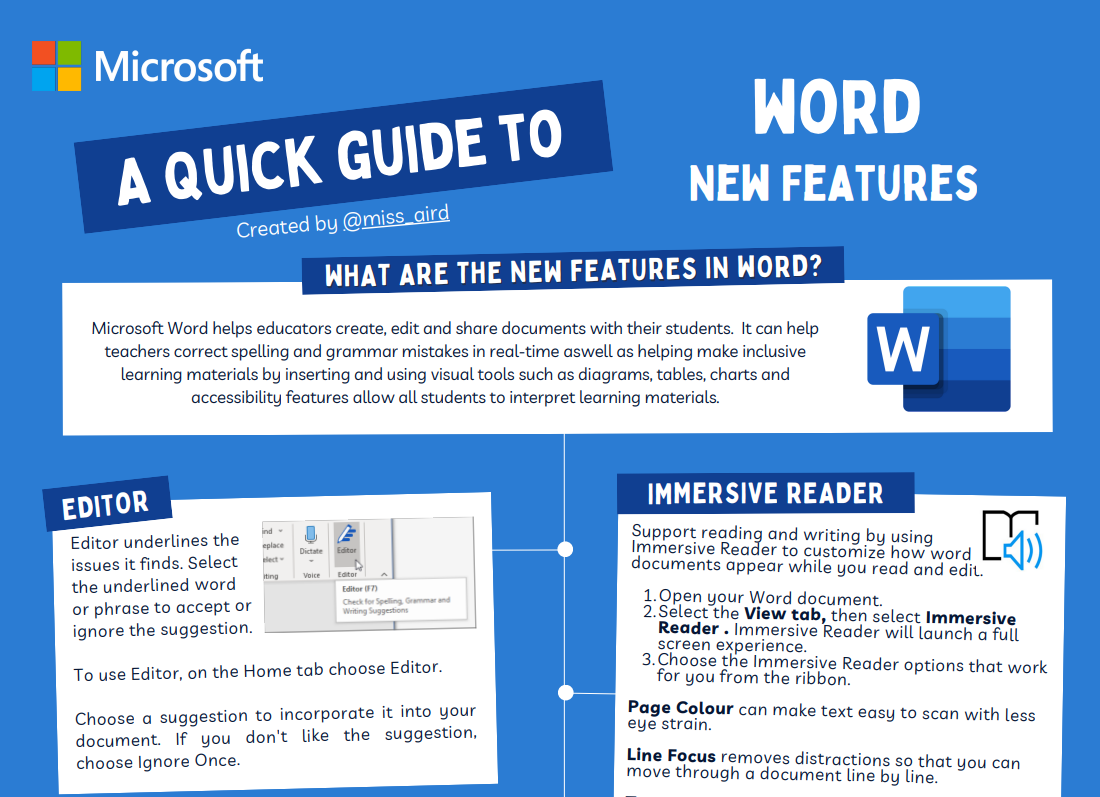
Use media, charts, design help, and more to make effective lesson plans and presentations. PowerPoint helps inclusive classrooms with features like Speaker Coach, Recording Studio, Designer and Dictate.
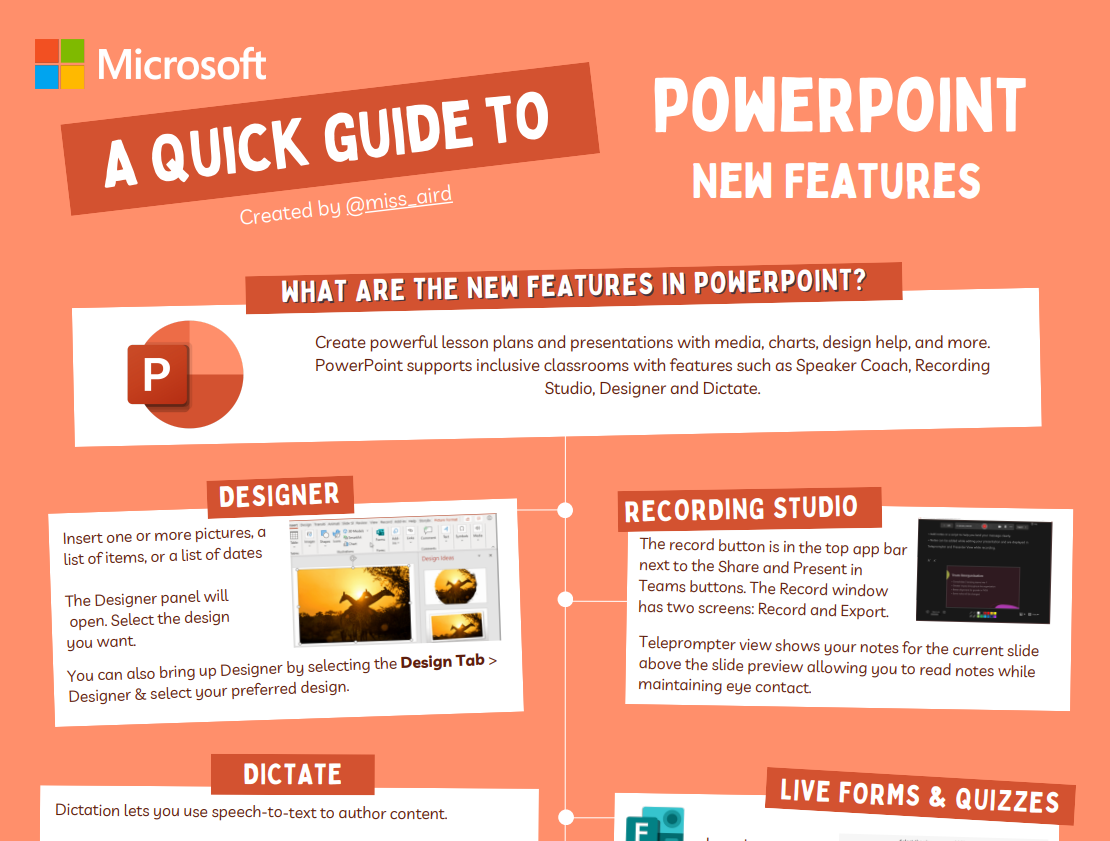
Microsoft Stream is a video management service that helps instructors arrange, make, store, share, and watch videos. Microsoft Stream is used in education for safe video sharing in the classroom. It allows you to easily share videos with small groups of students, classes, PLC groups, or families outside of school. It also adapts videos for students who use mobile devices.
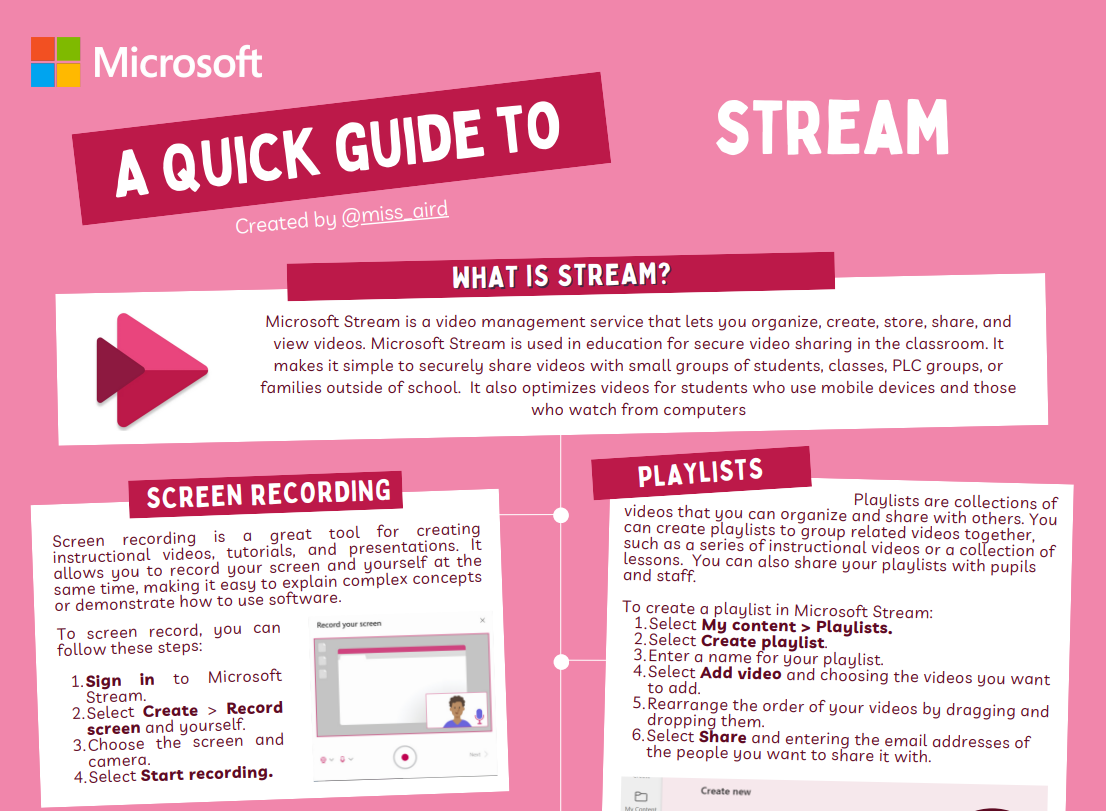
Educators can write more effectively on papers, emails, and the web with Microsoft Editor. With the aid of Microsoft Editor, students can improve their writing abilities and clarity of expression. It can also help educators save time by identifying typical errors and providing fixes.
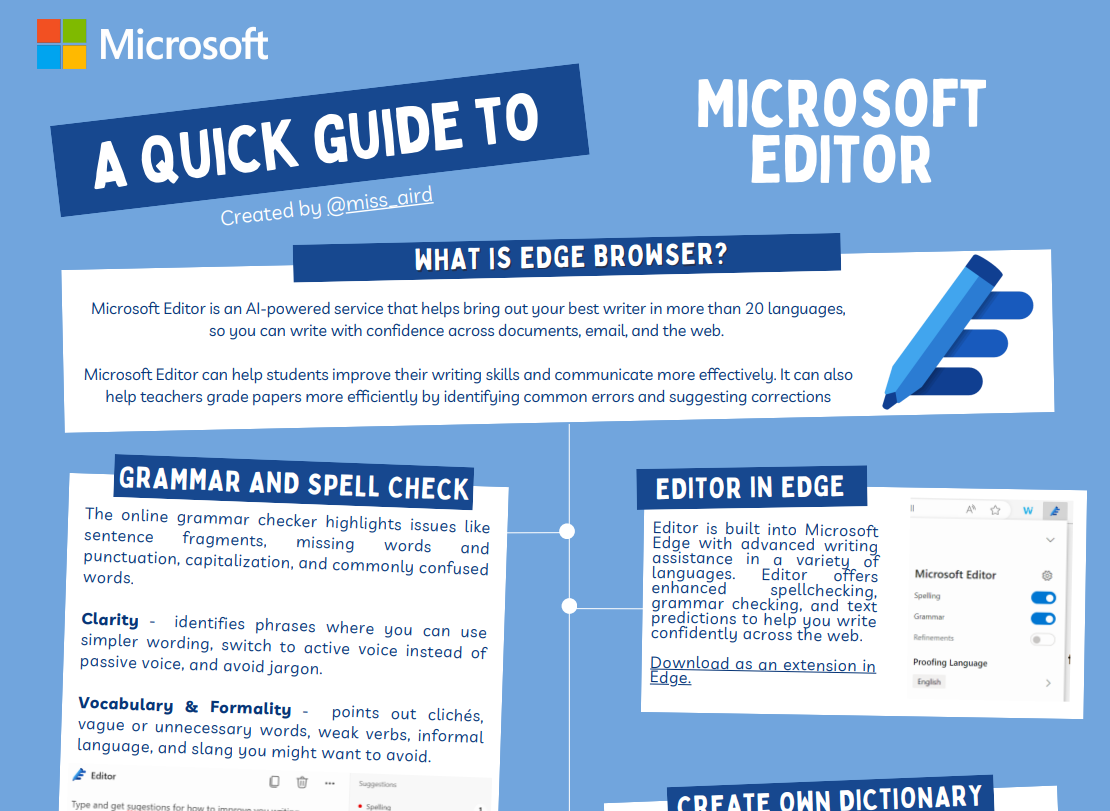
Microsoft Planner is an Microsoft 365 app for personal and team planning. It lets you make plans, assign tasks, and share files with a simple card-based interface. Instructors can use it to organize and work on projects in a visual way. You can also chat with others to coordinate your project or team task.
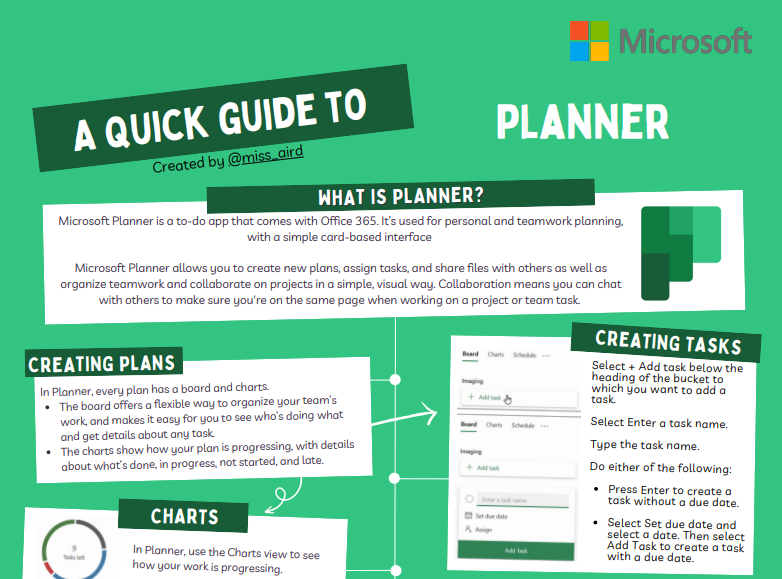
Microsoft To Do is an app that helps you organize tasks online. You can use it to schedule your day or work on projects and arrange reminders and assign tasks to others.
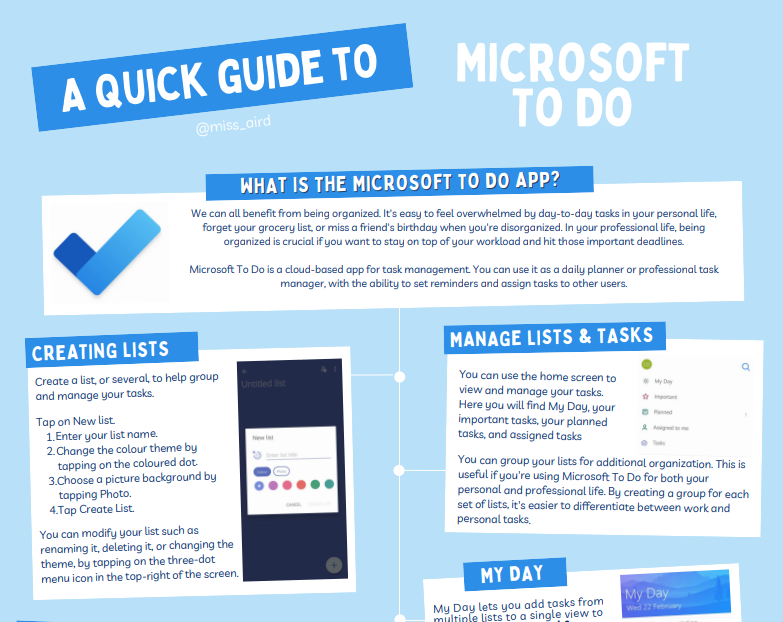
Immersive Reader can help readers develop their skills and understanding by using the Read Aloud feature, grammar options, reading speed, and text preferences. Immersive Reader has 3 main menus - Text Options / Grammar Tools/ ReadingPreferences. It also has a voice settings option that lets you listen to the text.
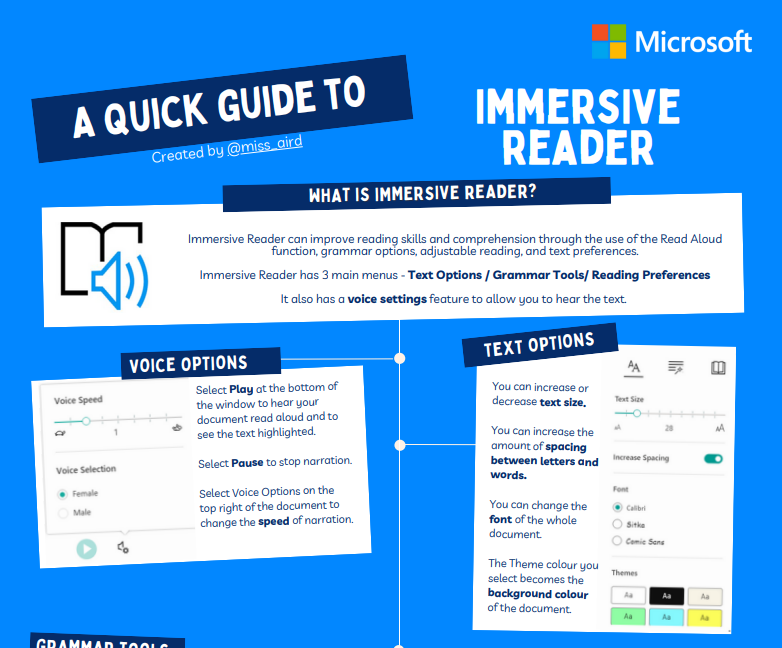
Microsoft Reflect helps you create impactful check-ins to gain insights into your learners' well-being and build a happier and healthier learning community, all through one easy-to-use app. By identifying your students' emotions, you can express fill their needs. Use emojis and pictures of emotion words to gauge how students feel. Teachers can also use Reflect to understand their students' learning, self-esteem, and interest in different topics in Class Notebook.
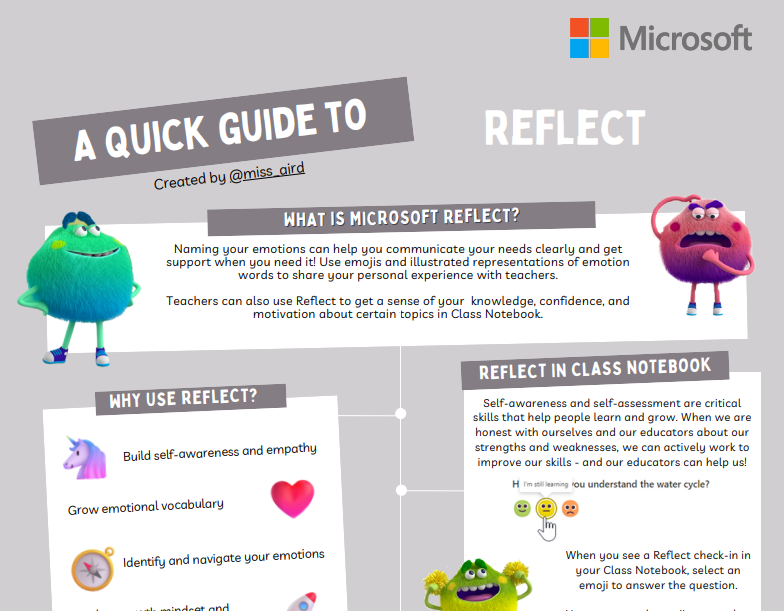
Live captions and subtitles, with translation options, are provided by Microsoft. Students who are deaf, hard of hearing or ML can use them to understand presentations. English and many other languages are supported.
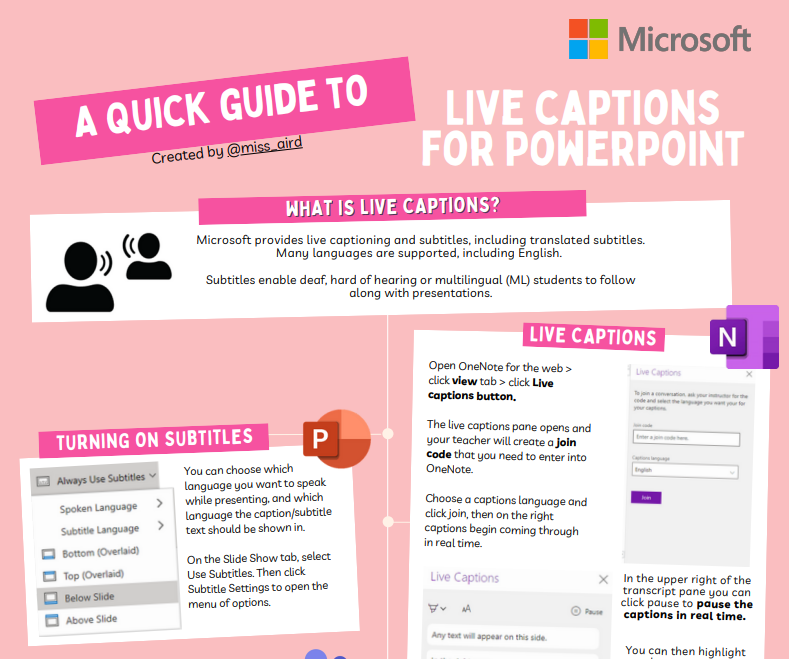
Microsoft Translatoris helpful for modern language learners to enhance their speaking abilities and facilitates cross-language communication. To start and take part in a translated chat, use the Translator app on any device.
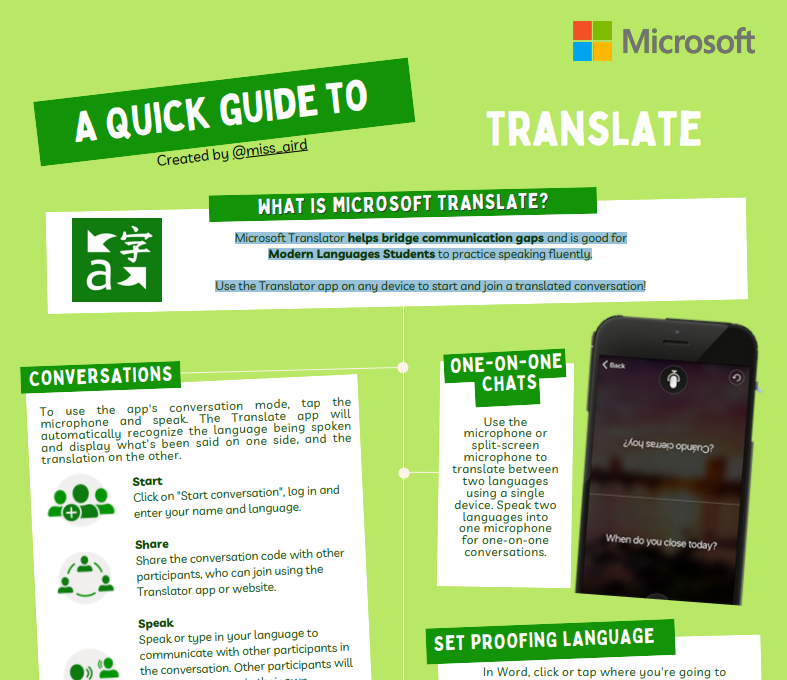
Math Solver is an advance Generative AI app from Microsoft that helps students with math problems in different topics like arithmetic, algebra, trigonometry, calculus, statistics, and more. Students can write a problem on the screen or take a photo with the camera. Math Solver quickly recognizes the problem and guides the student in how to solve it.
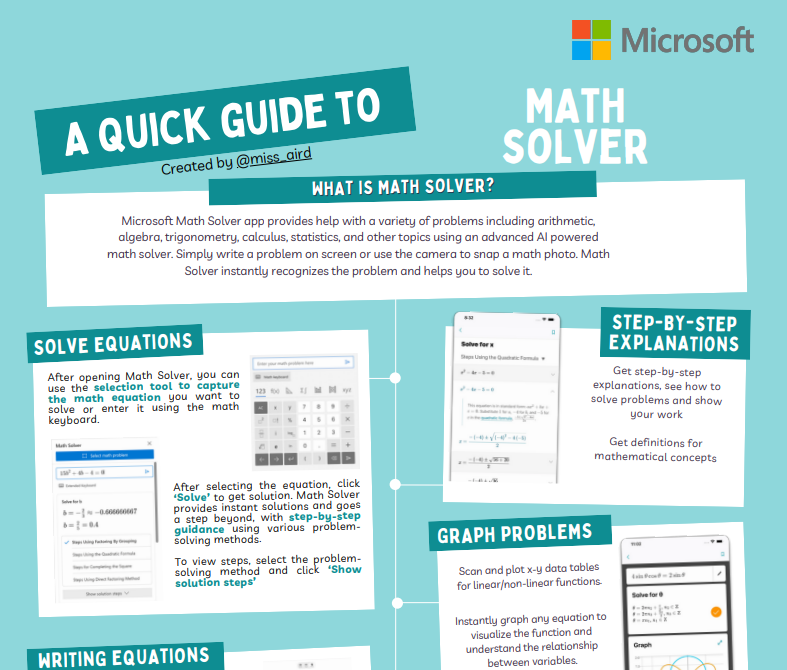
With dictation, you can use speech-to-text to write content in Office using a microphone and a stable internet connection. You can use your voice to easily create documents, emails, notes, presentations, or slide notes.
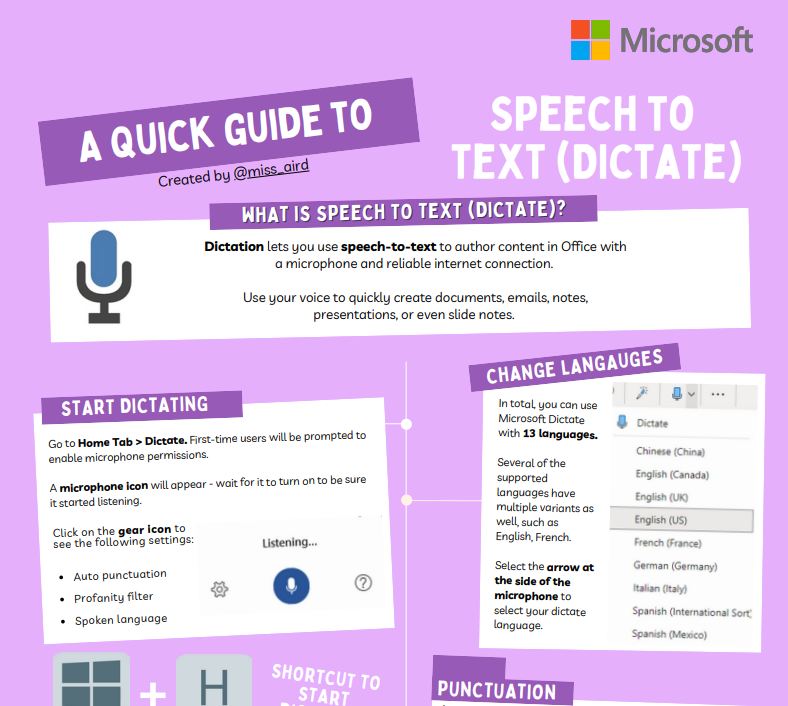
Office Lens is a Microsoft app that lets you scan notes and data from whiteboards, menus, signs, handwritten notes, or any text-rich objects. Office Lens eliminates shadows and skewed angles, so that images are more readable. You can export document and whiteboard images to Word, PowerPoint, OneNote, OneDrive, or save them as PDFs or email them.
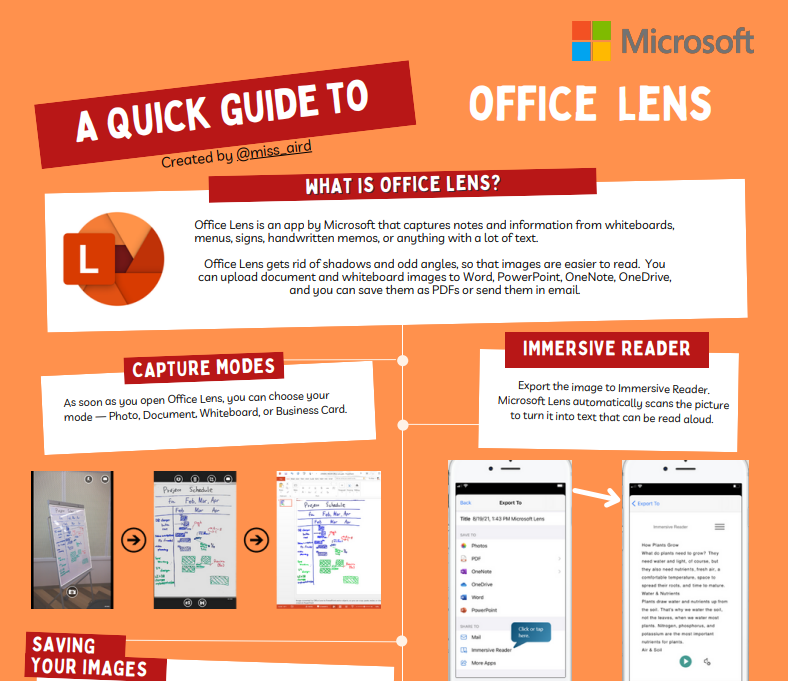
Reading Coach is a free tool that provides personalized, engaging, consistent and independent reading fluency practice. Reading Coach uses artificial intelligence and built-in fluency detection to personalize reading content with the words learners struggle with, while ensuring a safe and trusted experience.
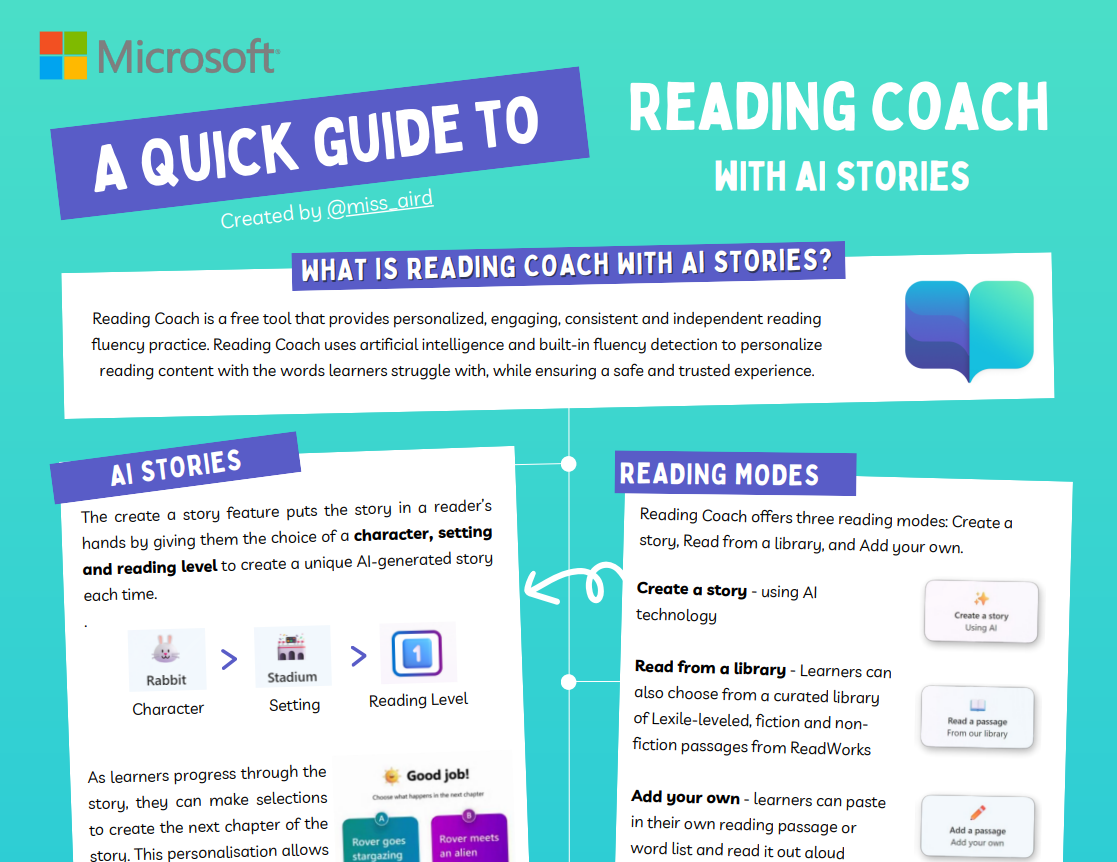
Microsoft Teams for Education has a suite of tools and resources that enable educators and students to leverage the power of artificial intelligence in teaching and learning. With Microsoft Teams for Education all educators can use AI tools at no cost to create personalized and interactive learning experiences, enhance curriculum and assessment design, and empower students with future skills.
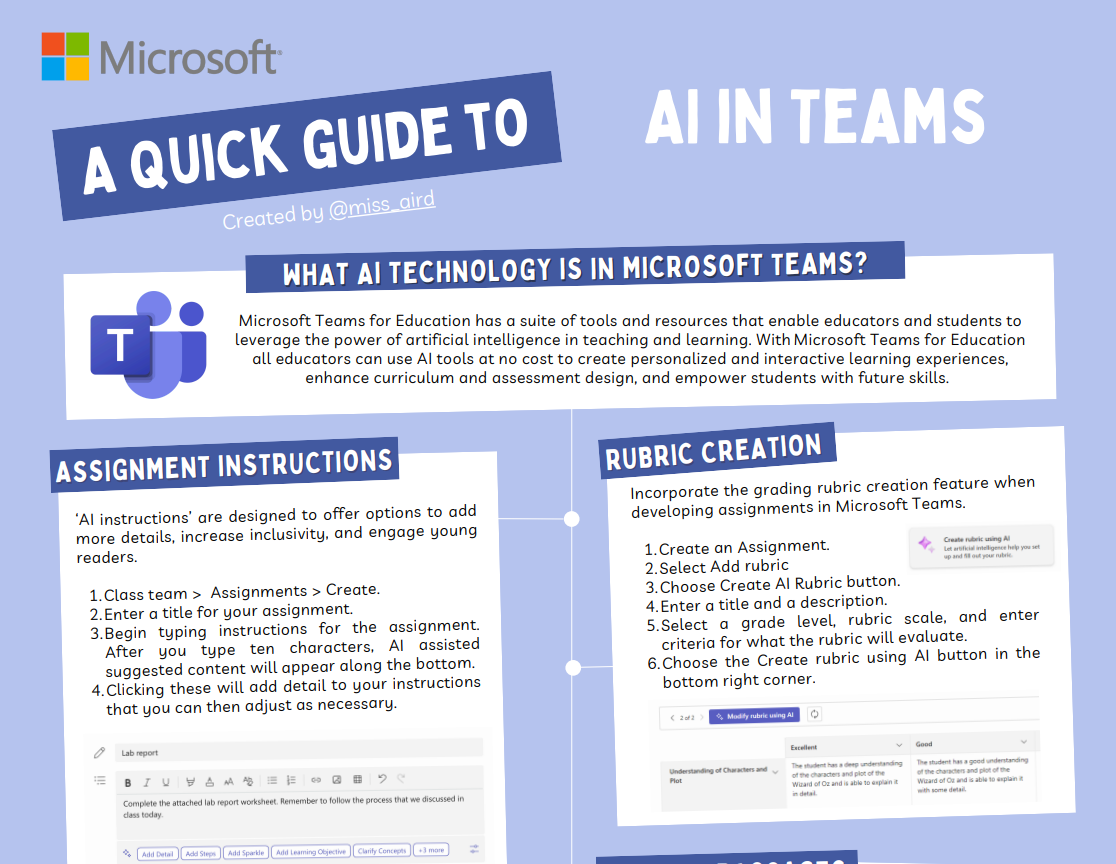
Khanmigo for Teachers is an AI-powered teaching assistant available for free to all US educators, thanks to a new partnership between Microsoft and Khan Academy. Khanmigo is designed to make your job less about paperwork and more about teaching. It collaborates with you on your most burdensome tasks, generating high-quality progress reports and classroom activities that build on your expertise.
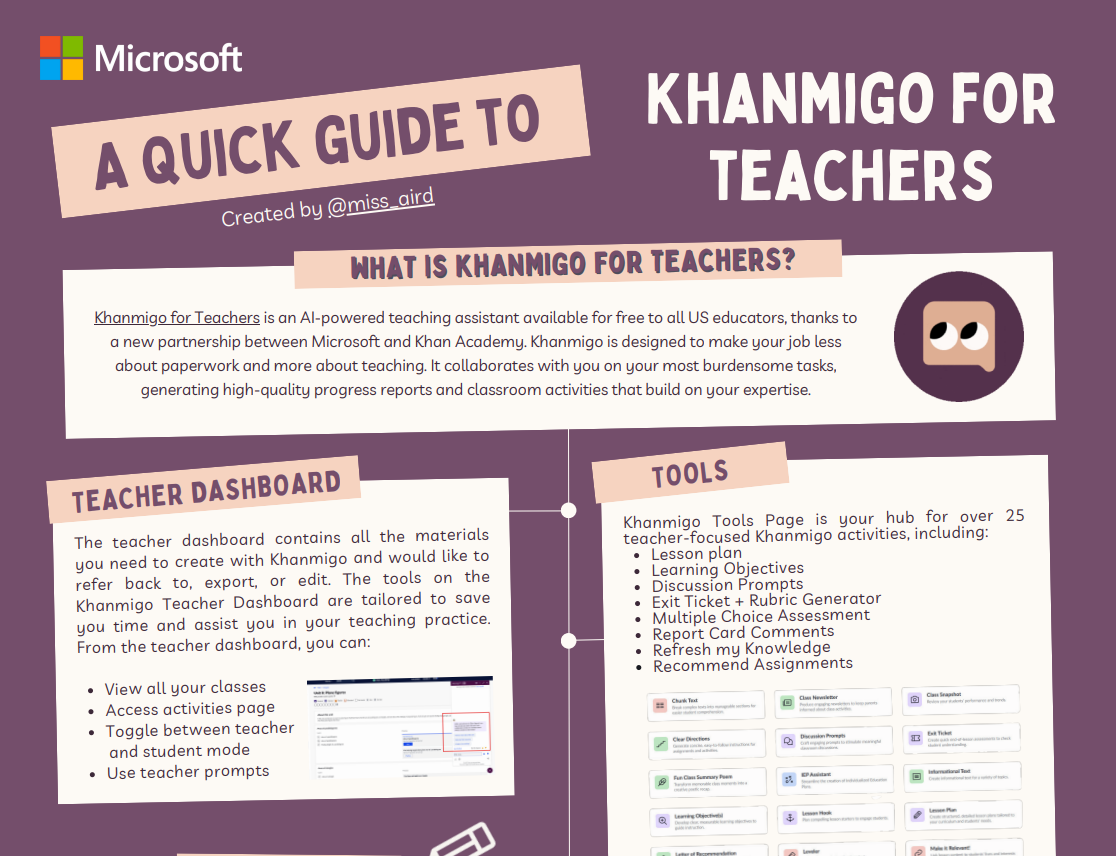
Classwork is designed to help you streamline your lesson planning process and organize your class resources more efficiently. Classwork is a one-stop shop to create and organize class resources, including Assignments, OneNote Class Notebook pages, web links, files, and Teams channels.